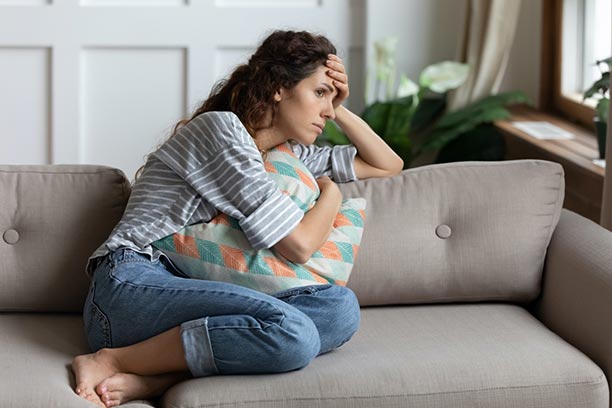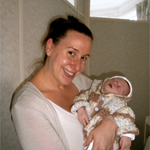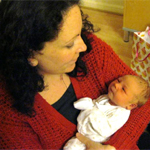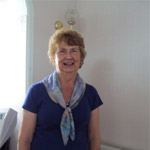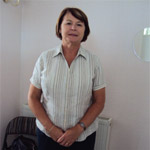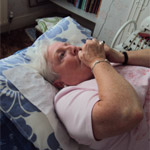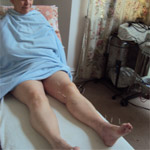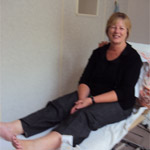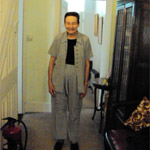Feeling SAD? Acupuncture can help with seasonal affective disorder
If you feel down during the darker autumn and winter months – you’re not imagining it. The weather can have a big impact on our mood.
In fact, so much so, there is a diagnosis for it and it’s called seasonal affective disorder (SAD). SAD is a type of depression that returns in a seasonal pattern. It can sometimes be referred to as ‘winter depression’ or the ‘winter blues’ because the symptoms are usually much more noticeable and severe during the darker months of the year.
According to the latest stats, one in three are affected by this disorder and most people tend to get symptoms in their 20s or 30s. But that’s not to say children can’t be affected too. Women are around four times more likely to have SAD than men.
What are the symptoms of SAD?
Symptoms of SAD differ from person to person, but according to the NHS, those who suffer with the disorder share these common symptoms:
- A persistent low mood or depressed feeling
- Feelings of worthlessness, guilt and despair
- Feeling sleepy during the day and having a lack of energy
- Sleeping for longer than normal and finding it hard to get up in the morning
- Irritability
- Loss of interest in normal everyday activities
- Craving carbohydrates and putting on weight
- Feeling indecisive
- Loss of libido
- Feeling anxious
- Feeling less sociable
What causes seasonal affective disorder?
The disorder has been linked to reduced exposure to sunlight during the shorter autumn and winter days. According to the NHS, the main theory behind this is that a lack of sunlight stops a part of the brain – called the hypothalamus – working to its full extent.
This in turn might affect three things:
- The production of melatonin – the hormone that makes you feel sleepy. With those that suffer from SAD, the body may produce melatonin in higher-than-normal levels
- The production of serotonin – serotonin affects your mood, appetite and sleep. A deficit of sunlight may lead to lower serotonin levels which is linked to feelings of depression
- Your body’s internal clock – your body uses sunlight to time various factors. This includes waking up. So lower light levels during the autumn or winter season may disrupt your natural body clock and lead to symptoms of SAD
How to treat SAD
Whilst there are various treatments available to help combat the symptoms of SAD, such as light therapy (which gives you some exposure to sunlight), lifestyle changes (such as getting as much natural sunlight as possible), adding regular exercise into your routine and managing your stress levels. Acupuncture can help too.
How acupuncture can help with SAD
Acupuncture is the practice of inserting needles into pressure points in the body. It is often used to treat depression and anxiety – which as we’ve discussed earlier, are two symptoms of SAD. Acupuncture helps to restore the body’s mental and physical wellness and rid any imbalance. In the case of SAD, acupuncture helps to increase the serotonin levels in your body, which you are lacking. In turn, this helps to regulate your mood and restore overall balance.
And there’s evidence to back its effectiveness. According to the British Acupuncture Council, research has shown that the treatment of acupuncture may ‘specifically benefit anxiety disorders and symptoms of anxiety’. It does this via a handful of ways, including:
- Promoting relaxation and deactivating the ‘analytical’ brain, which is responsible for anxiety and worry (Hui 2010).
- Balancing a range of feel-good hormones such as serotonin and dopamine to alter the brain’s mood (Lee 2009; Samuels 2008; Zhou 2008; Yuan 2007).
- Reversing stress-induced changes in behaviour and biochemistry (Kim 2009).
Whilst research also flags the effectiveness of acupuncture on depression.
According to the British Acupuncture Council, two reviews highlighted that acupuncture was similar in effectiveness to anti-depressant medications (Zhang 2010) and (Smith 2010).
Moreover, further research titles indicates that acupuncture can have a ‘specific positive effect on depression’ by altering the brain’s mood chemistry, increasing production of serotonin (Sprott 1998) and endorphins (Wang 2010).
Other researchers concluded that acupuncture may also benefit depression by acting through other neurochemical pathways, including those involving dopamine (Scott 1997), noradrenaline (Han 1986), cortisol (Han 2004) and neuropeptide Y (Pohl 2002).
The history of acupuncture
The art of acupuncture was founded more than 300 years ago in China. Back then, Chinese practitioners discovered that there are passages within the body known as meridians in which energy – or Chi – flows through. It’s been proven that the destruction of these paths causes physical and emotional imbalance. The insertion of acupuncture needles stimulates certain pressure points in the body. This insertion allows the free flow of energy to continue by releasing feel-good endorphins which promote the brain’s production of serotonin – a chemical vital to help regulate your mood.
Denise has been mastering the skill of acupuncture for more than a decade after studying Medical Acupuncture at the Centre for Study in Complementary Medicine in Southampton. Denise went on to study a three-year course in Traditional Chinese Medical Acupuncture at the British College of Acupuncture before flying to China – the birthplace of acupuncture – and practicing alongside the best in the industry.
If you would like to discuss any symptoms you are suffering or want to find out more about acupuncture treatments, please don’t hesitate to get in touch.

